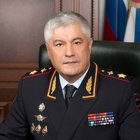The event was attended by deputies and assistants of plenipotentiary presidential envoys to the federal districts, heads of federal executive authorities, Deputy Prime Minister of the Republic of Tatarstan Vasil Shaikhraziyev, Deputy Chairman of the Omsk Region Government, Minister of Labour and Social Development Vladimir Kupriyanov, and Deputy Governor of Kaluga Region Konstantin Gorobtsov.
Vladimir Kolokoltsev recalled that at the final session of the Interior Ministry Board, Vladimir Putin noted the importance of conducting a comprehensive analysis of migration issues with the long-term interests and goals of national development in mind. Special emphasis was placed on work with citizens in the new regions.
In addition, it was reported that on May 16, Prime Minister Mikhail Mishustin held a strategic session on migration policy. Participants in the session mapped out promising areas and main goals in this sector until 2030, including issues of compatriot resettlement.
Mr Kolokoltsev said much had been done in the past few years to improve and promote the resettlement process. In particular, participants in the state programme have the right to receive Russian citizenship without prior obtaining a temporary or permanent residence permit. These amendments will enter into force in late October. A number of legislative acts by the President and the Government have been issued to facilitate relocation from unfriendly states, ease the procedure of submitting resettlement documents and processing entry visas. Work has been organised to adjust regional programmes by removing excessive demands for this category of individuals.
The Interior Minister emphasised that the process of returning home should be easy, quick and understandable, but of course, without any risk to national security. He pointed out the importance of upgrading standards and regulations for resettlement to Russia, with the active participation of all departments involved in this process.
Mr Kolokoltsev stated that the regions are doing much to draft their own programmes, implement measures on receiving resettlers, helping them organise everyday life and get jobs and provide them with social support. The Interior Minister reported that since the start of the State Programme, over 1,100,000 people moved to Russia for permanent residence. Of this number, about 80,000 arrived in 2022–2023. The Central, Ural, Siberian and Volga federal districts have received the majority of compatriots.
The participants in the session listened to reports on implementing regional resettlement programmes in Tatarstan, and the Omsk and Kaluga regions.

